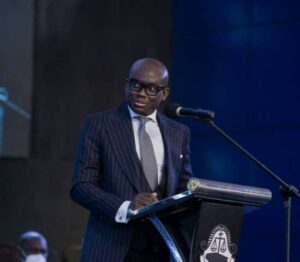Ghana to introduce reward systems for whistleblowers

Mr Godfred Yeboah Dame, Minister of Justice and Attorney General, says he is seeking to boost the Whistleblowers Act, 2006 (Act 720) by introducing a reward system for whistleblowers.
“The proposed amendment which seeks to operationalise the Whistleblowers Fund, by ensuring a dedication of thirty per cent of all revenue, accruing from cases conducted on the strength of a whistleblower’s activity is paid into the fund.
Ten (10) percent of the income directly generated by the whistleblower’s efforts which were paid to the whistleblower, was approved by Cabinet last week and would be laid in Parliament before the end of the year,” he said.
The Minister of Justice said this at a public forum to mark International Human Rights Day (2022) held at the British Council in Accra.
The occasion was on the theme: The State of Human Rights in Ghana: Progress, Challenges, and the Way forward.
Mr Dame recalled that a Technical Committee to draft Standard Operating Procedures for Whistleblowers Protection was launched in Ghana in August 2022.
He explained that the Technical Committee’s work would culminate in a set of rules which would boost the Whistleblowers regime in the country.
Mr Dame noted that the state of human rights in the country could best be described in one single phrase ” Lots of ground gained with some more room for improvement.”
“This phrase is apt upon a holistic consideration of the state of human rights in Ghana from the conventional civil and political rights to the critical, economic, social and cultural rights,” he added.
He said in Ghana, there was the presence of a free, dynamic and very-highly critical press and recounted some isolated incidents of threats and attacks on the media which had been responsible for Ghana’s drop on the recent ranking of the World Press Freedom Index.
The Minister of Justice said a lot of work ought to be done to boost the image of the nation in that regard.
He said it was imperative however to point out that freedom and rights that the nation enjoyed were not absolute.
“There is the need for all of us to exercise greater responsibility to safeguard the perpetual enjoyment of those rights and freedoms, including media freedom by observance of the limitations sanctioned by the Constitution and other applicable laws.
He said impunity, especially brute violence by the Police, was a major issue of concern to human rights campaigners.
According to him, the phenomenon was on the decline with deliberate training of Police officers not to engage in acts of torture in the conduct of arrests, investigations and interrogations.
“Acts of excessive use of force by police officers are thoroughly investigated and internal disciplinary mechanisms are properly instituted,” he said.
Mr Dame said the insufferable statistics of congestion in Ghana’s prisons were a cast story.
Mr Irchad Razaaly, Ambassador, Delegation of the European Union to Ghana, said upholding and protecting human rights was not a “fixed state” but an ongoing process.
Mr Razaaly noted that for some time now, countries have had their human rights record scrutinized and re-evaluated to ensure that fundamental rights were adequately respected in the changing national and international context.
At the International level, he said, it worked through the United Nations Human Rights Council’s Universal Periodic Review (UPR), a peer-to-peer edition between all UN member states.
He said Ghana would undergo its fourth UPR in January next year, adding the event had presented a unique opportunity to debate and inform and feed into the dialogue at the UN level.
Mr Joseph Whittal, Commissioner, Commission of Human Rights and Administrative Justice (CHRAJ), said to assess the state of human rights in the country and make projection for the future, “we should all bear in mind the dignity, freedom and justice for very individual in Ghana.”
Mr Sulemana Braimah, Executive Director, Media Foundation for West Africa (MFWA), said it was crucial that “sometimes we should use all we have and all we could to promote, defend and protect the rights of the citizens.”
This, he said, was because these rights were fundamental to our survival and our existence. In other words, without these rights, for us, it will be something else,” he said.
He said this year’s event was also organised to mark the 75th anniversary of the adoption of the Universal Preparation of human rights by the UN General Assembly.
Mr Sulemana reiterated that over the years, Ghana as a country had made significant progress on human rights but there were still major challenges that the country had to deal with.
This, he explained, required the country to always plan to strategize and execute appropriate actions that would help the country to make progress.
“Together, we can build a nation in which dignity, freedom, and justice for all are guaranteed in law and respected in practice,” he stressed
Source: GNA
